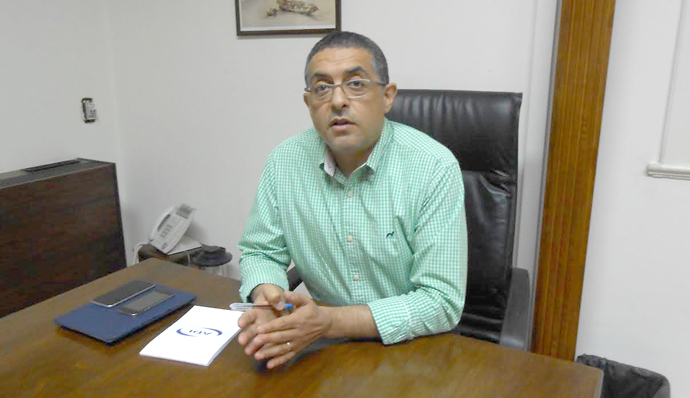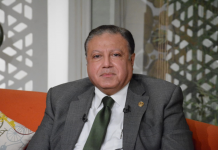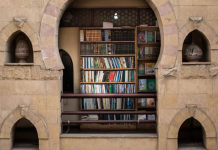Bedaya fund is negotiating with 3 banks to secure financing for Bedaya’s EGP 15m light system factory
Tax and insurance measures should be facilitated to encourage small projects
Banks now focus on small enterprises that need from EGP 500K to 1m funds. The banking sector cannot handle all these enterprises, for there are too many of them. Thus, they should turn to companies that finance micro-enterprises
By Mahmoud Hammad
Middle East Observer interviewed Hossam Heiba, Investment Manager at Al Ahly for Development & Investment, to discuss Bedaya Fund’s negotiations with banks to secure dollar loans to import machinery and equipment for its factory. The company, is affiliate to The General Authority for Investment.
Heiba talked about small and medium sized enterprises’ means to encourage and finance them as well as his thoughts on the economy.
Tell us about the latest updates of Bedaya Fund.
We are currently negotiating with 3 banks to get financing in dollars, so we can import machinery to operate Bedaya’s EGP 15m factory for light systems. The land parcel and the building are already secured, and we have contracted on the equipment with Chinese suppliers. But, the money is not transferred yet since it is hard to provide foreign currency. That’s why we are trying to find the perfect way to fund the project for it to be economically fruitful.
How did the banks respond during negotiations?
They definitely were not hindering our efforts and were rather very helpful. Yet, they face a problem with dwindling dollars. We are expecting to hear from them within 2 weeks.
What about the project’s feasibility studies?
The feasibility studies were conducted at a certain dollar exchange value, but it increased later by 15 per cent. That’s why, we are working on them again, trying to figure out the best way to achieve the project. We refuse to turn to black markets to secure our need for dollars.
What kind of problems did you face when operating the factory?
These would be the usual problems that are recurrent in Egypt, namely securing foreign currency to import equipment and loans from banks which took way more time than the regular and such enterprises cannot afford that.
What do you think the best way is to develop small and medium-sized enterprises?
The state has to ease procedures, trade and industry licenses, and dealings with tax and insurance authorities for these companies, for they face a lot of obstacles, especially with the latest two.
Moreover, the term small and medium-sized enterprises must be re-defined to comply with world standards, i.e., to specify their capital and the size of sales and labour.
How do you see the Central Bank’s recent definition of small enterprises?
I think it needs few adjustments, because some of the enterprises it included had more than EGP 100m sales, 220 employees and EGP 50m capital. Such are upper medium-sized and just medium or small.
Moreover, banks now focus on small enterprises that need from EGP 500K to 1m funds. The banking sector cannot handle all these enterprises, for there are too many of them. Thus, they should turn to companies that finance micro-enterprises.
Are there any other incentives to encourage small and medium-sized enterprises?
Yes, indeed there are. This could be carried out through different national enterprises or provisions to ministries in which small enterprises have no more than 5 per cent stake. This should be boosted, because it is not enough. Moreover, there should be more drives and encouragement through granting more privileges to major companies that deal with small and medium-sized enterprises.
In addition, quality standards should be laid down, and the more these companies comply with them, the more they will be awarded through tax facilitations and others. All this will encourage small and medium enterprises.
What about the informal sector and turning it into a formal one?
This sector must be encouraged to drive it to join the formal economic system which would result into a great balance in tax and different facility levies. Most informal economy workers don’t operate through official paths which represents a burden to the state and formal investors.
Does Nile Bourse have a role to play in financing small–sized enterprises?
I think the need for that will emerge later and not today. Small-sized enterprises should be revitalized first to attract investments, which would present later the need to increase capital or disengage from projects through Nile Bourse. However, this sector is not appealing to investors right now, so they do not turn to that bourse but to other companies with less problems.
It could be said that tax facilitation and not exemption is the major factor to revitalize this kind of enterprises. We do have some related experiences in domestic market, for as of 2006 and 2007 when taxes were reduced, the state’s levies increased. That’s why, a directorate could be set-up especially for small portfolios with a manager experienced in this field.
Do you think the government will achieve the targeted 5 per cent growth rate?
Well, the status-quo proves the opposite. The economic growth requires higher GDP, more foreign investments, and better industry and trade indicators. There are all hard to achieve amid the dollar crisis.
Finally, I call on state officials to explain to us how they plan to achieve these rates.












